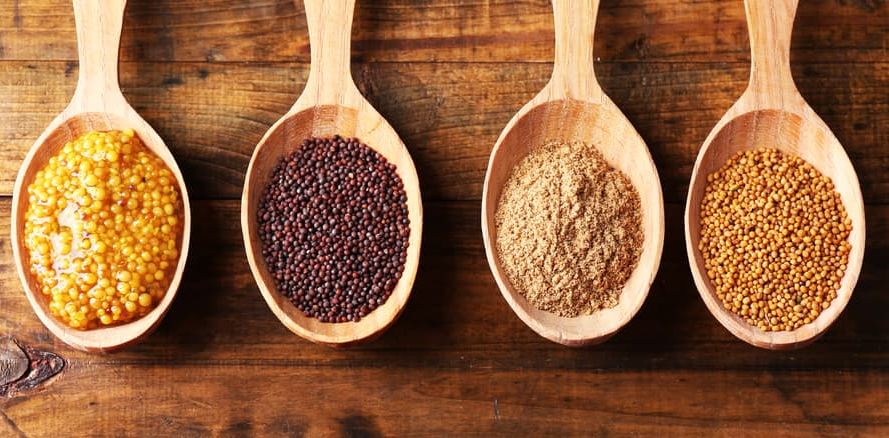

Prepared from seeds belonging to the Brassicaceae family (or Cruciferae, the plants with cross-shaped petals that also give rise to cabbage and broccoli), mustard was named after the plant of the same name.
Today's condiment is a skillful blend of ingredients: depending on the recipe, white, yellow or black seeds are mixed with milk, wine or vinegar for texture, and salt, sugar or honey for taste.
In France, the list of authorized ingredients for Dijon mustard is governed by decree, as is the recipe. Although it is legally protected, its production is not necessarily restricted to the capital of Burgundy.
Canada, for example, is one of the world's leading producers of this popular hot mustard, and the shortage of seeds in North America in 2022 has had a direct impact on the French market. After the Second World War, however, it was thanks to our American cousins that national mustard production was able to resume, as the sixty or so French companies of the 1800s did not all survive the great European conflicts of the 20th century.
Nevertheless, 2 of the industry's historic players are still in business: Alelor, the last mustard factory in Alsace, founded in 1873, and Fallot, an independent, family-run business launched in Beaune in 1840. Associated with the Amora-Maille brand (in part created as early as 1703 by a master vinegar-maker), the company decided to relaunch mustard seed production in the 1980s.
Her initiative, supported by a number of farmers, has resulted in the cultivation of 6,000 hectares of mustard seeds in Burgundy, the region specialized in mustard since the 14th century.
Other vinegar-producing towns (Bordeaux, Tours and Reims) also supply mustard to the French every year, with the 15,000 tonnes of seeds grown here mainly destined for domestic consumption.
Continue reading with these articles